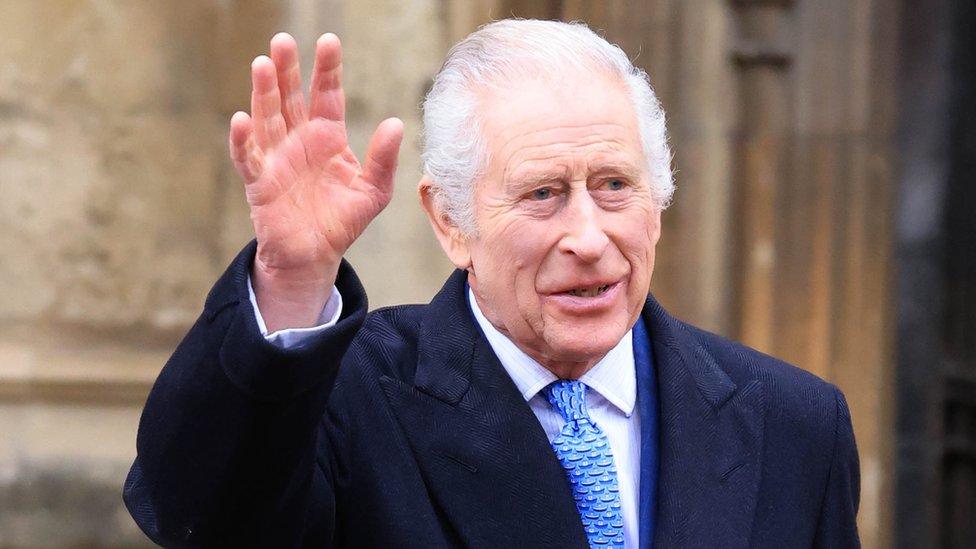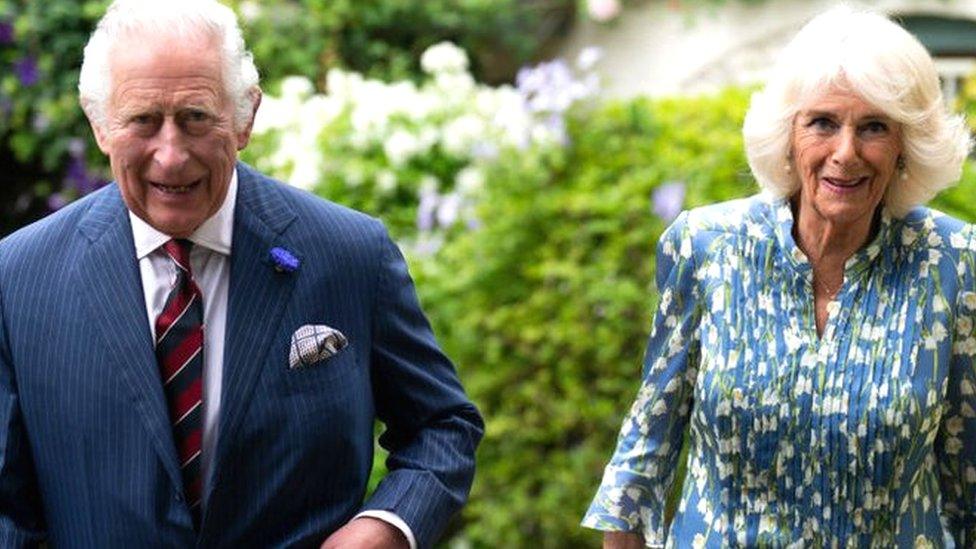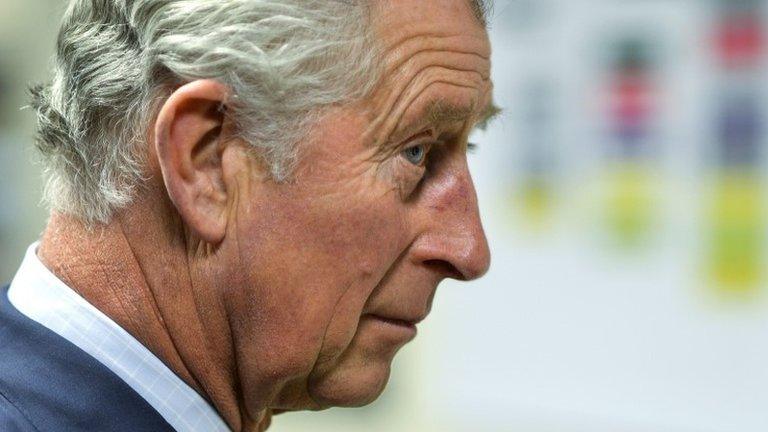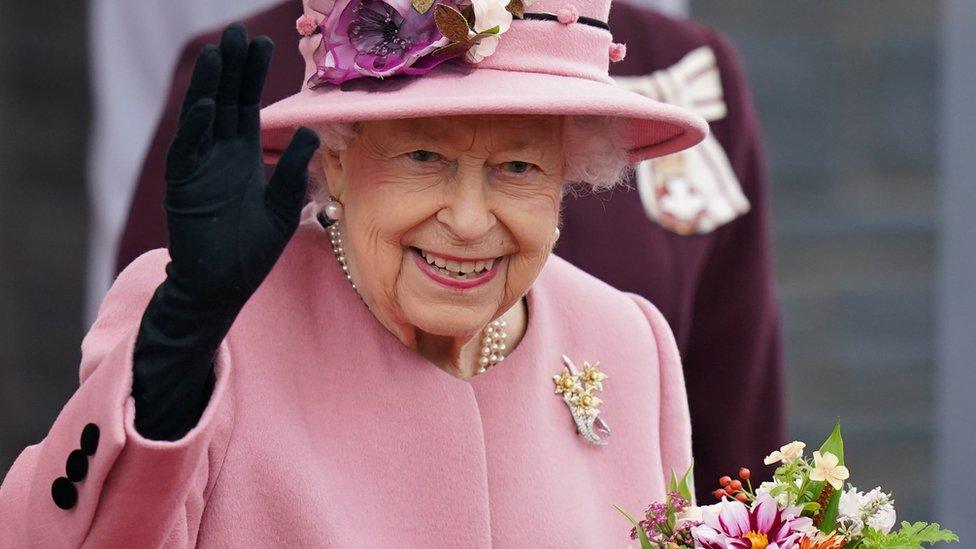King Charles exempt from Wales' farming-law prosecution
- Published

King Charles became monarch in 2022 after the death of Queen Elizabeth II
King Charles cannot be prosecuted under a new farming law in an exemption reluctantly agreed by the Welsh government.
Buckingham Palace phoned officials last year asking for assurances that the King could not be prosecuted under the Agriculture Wales Act, external.
Documents released by the Welsh government show a government minister was "not happy" but agreed to the move.
The palace said it sought assurances "as a matter of legal correctness".
It added that it was "wholly incorrect to suggest this was in any way pressuring the Welsh government".
The Welsh government said immunity of the monarch from prosecution was a "long-established principle".
Expressing concerns about the story, first reported by the Guardian, external, Plaid Cymru MP Liz Saville Roberts said it was an "anachronism that had no place in Welsh democracy".
The exemption means the monarchy cannot be prosecuted for breaching rules on agricultural product standards, the classification of carcasses or the sharing of data, and that his properties cannot be entered by force.
It was confirmed last year that the King was giving up his lease on his Welsh estate near Llandovery.
However, the Duchy of Lancaster, the private estate of the British sovereign, does have land in Wales.
It is a long-standing UK convention that the monarch cannot be prosecuted - the Welsh and other governments regularly have to seek consent from the King when laws affect his interests.
Documents released under the Freedom of Information Act (FoI) show the palace contacted the Welsh government's lawyers for an assurance ministers "will take into account conventions" regarding prosecuting the Crown when rules were drawn up on how the bill would work.
Buckingham Palace confirmed it had sought the assurance, and the Welsh government later confirmed the exemption in a letter to the palace dated 6 June 2023.

Mick Antoniw confirmed the decision but was "not happy" with it
The letter said: "Further to the conversation between your office... and the Welsh government lead solicitor on this matter, we confirm that when making regulations... the Welsh ministers will keep in mind the exclusion by convention of the Crown in respect of criminal enforcement and powers of entry."
An email disclosed by the FOI response said government minister Mick Antoniw was "not happy with the exclusion, he recognises the ongoing convention and therefore confirms clearance".
Pontypridd Labour Member of the Senedd Mr Antoniw was acting as counsel general, the Welsh government's senior legal adviser.
He is due to be reconfirmed in the role after the election of Vaughan Gething as first minister.
The King's deputy private secretary later agreed consent to the law, the FOI response shows. The regulations discussed in the correspondence are yet to be published.
King Charles III spoke for the first time in monarch in the Senedd in 2022
Buckingham Palace said under "pre-existing Welsh law" it was "not possible for Welsh subordinate legislation to make the Sovereign criminally liable, not least as it would be constitutionally inappropriate to prosecute a monarch in whose name the Crown Prosecution Service and courts would act".
Subordinate legislation are regulations which decide how an act passed by the Senedd will work.
A spokesman added: "As a matter of legal correctness, assurance was therefore sought that this position would be maintained when subordinate legislation for the Agriculture (Wales) Act 2023 came to be drafted, to allow the process of consent required by Welsh parliamentary procedure... to be properly informed.
"At no point were any objections raised by the Welsh government, either formally or informally, in relation to this process."
Ms Saville Roberts said: "Reports that royal courtiers privately put pressure on the Welsh government to ensure that King Charles could not be prosecuted for rural crimes under a new law are concerning."
The Welsh government added: "The immunity of the monarch from prosecution is a long-established principle and we have nothing to add to the information we have already provided."

MICHAEL SHEEN'S DIRECTORIAL DEBUT: An ordinary family caught up in extraordinary events
MEN UP: Five ordinary Welshmen embark on a surprising medical trial

Related topics
- Published3 May 2023

- Published26 March 2015

- Published4 June 2023
- Published15 October 2021
